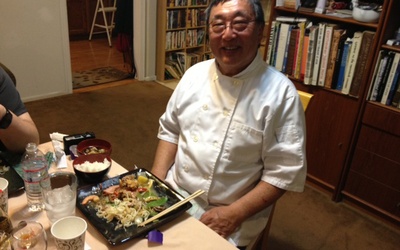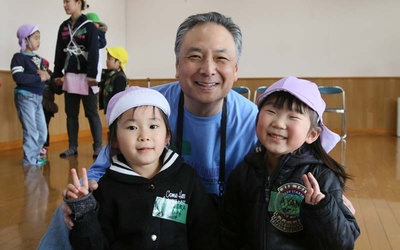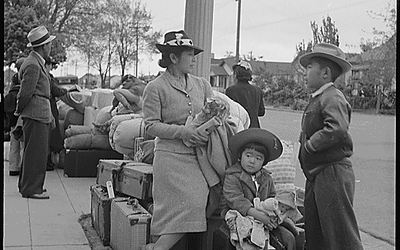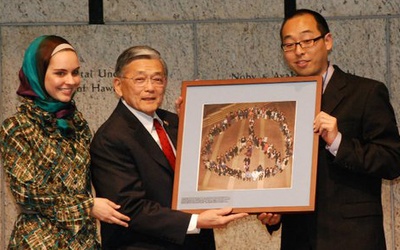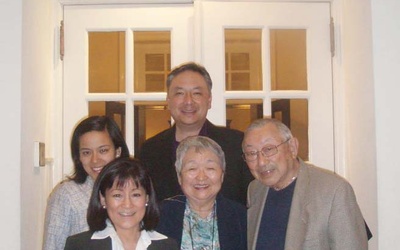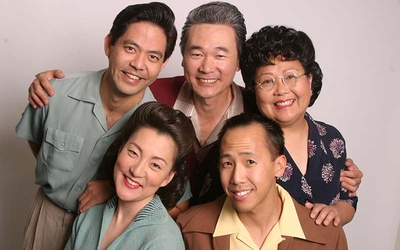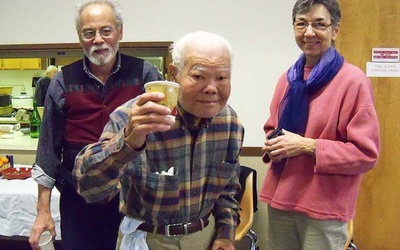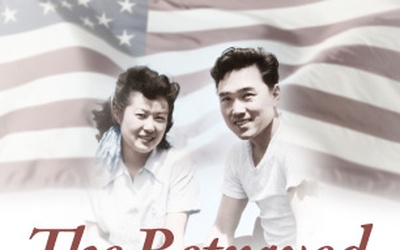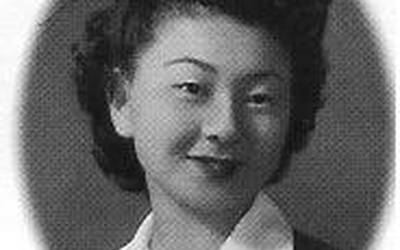
Soji Kashiwagi
@sojikashiwagiSoji Kashiwagi has written numerous plays, articles, columns and essays on the Japanese American experience, many of which have focused on the WWII imprisonment of the Japanese American community. He's a playwright, co-founder and Executive Director of the Grateful Crane Ensemble, a non-profit theater company based in Los Angeles, CA. With Grateful Crane, he has led three goodwill tours to Tohoku, Japan in 2014, 2016 and 2018 where the group has performed songs of hope and healing for survivors of the 3/11 Great East Japan Earthquake and Tsunami.
Updated March 2021
Stories from This Author
In Search of “Chinameshi”
June 24, 2015 • Soji Kashiwagi
We call it “Old School Chinameshi,” this Cantonese version of Chinese food that Japanese Americans have been eating long before WWII, and several decades after. You won’t find it in most Chinese restaurants today—the homyu, the pakkai, the almond duck…But you mention these dishes to Japanese Americans who remember, and all of a sudden mere words conjure up powerful memories of tastes and smells. With these words, come vivid images of a time gone by, of family who have passed, …
Book Review: INFAMY: The Shocking Story of the Japanese American Internment in World War II
May 22, 2015 • Soji Kashiwagi
Why, you might ask, do we need yet another book about “camp”? Richard Reeves, author of the recently released INFAMY: The Shocking Story of the Japanese American Internment in World War II, explains his reasons in the book’s introduction: “I finally decided to write this book when I saw that my country, not for the first time, began turning on immigrants, blaming them for the American troubles of the day. Seventy years ago, it was American Japanese, most of them …
Grateful Crane Ensemble’s Goodwill Tour to Tohoku, Japan
July 10, 2014 • Soji Kashiwagi
“How was your trip to Japan?” It’s a question I’ve been asked several times since we returned from our Goodwill Tour to Tohoku last month. “It went really well,” I would say. But after that, I would have a hard time finding the words to describe it. “It wasn’t like your typical tour of Japan,” said one of our group members. This is true. We did do some sight-seeing, but the sights to see in the tsunami-affected towns of Minamisanriku and …
Letter to President Obama re: Indefinite Military Detention
Jan. 18, 2012 • Soji Kashiwagi
January 10, 2012The Honorable Barack ObamaPresident of the United StatesThe White House1600 Pennsylvania Avenue NWWashington, D.C. 20500Dear President Obama, Before I begin, I must say that I have the utmost respect for the Office of the President, and I want to thank you for the job you are doing under difficult circumstances and in an oftentimes hostile environment. That being said, I must also express to you my deep disappointment and outrage at your “under the radar” New Year’s Eve …
Letter to the Muslim American Community 2011
Sept. 11, 2011 • Soji Kashiwagi
Dear Muslim American Friends,I am writing to you to extend a hand of support and understanding and to let you know that members of the American Muslim community are not alone when it comes to standing up to hate and intolerance in our country. As a third generation Japanese American (aka “Sansei”), I am deeply troubled by the current environment of hate, fear, vandalism, and violence toward the American Muslim community. It is eerily reminiscent of the time during World …
Hiroshi Kashiwagi Goes to Washington
June 19, 2011 • Soji Kashiwagi
For my father, Nisei playwright, poet, and actor Hiroshi Kashiwagi, the journey up the steps of the Lincoln Memorial in the heart of Washington, D.C. was steep and arduous. Now 88-years-old, he moves much slower than he used to, but he was determined to reach the top, slowly, step by step. Because for my dad, a steep climb up some steps is nothing in comparison to the long journey he has taken throughout his life to reach this moment. From …
We Help Each Other
April 28, 2011 • Soji Kashiwagi
I’m not an expert on Japanese culture and customs, but as I observe what’s happening in Japan after the earthquake and tsunami I am confident that the country and its people will eventually recover and rebuild their lives because of one key concept and way of life that is deeply embedded in the Japanese spirit: “Otagaisama.” Helping each other, mutually. More so than “gaman” (to endure), “shikata ga nai” (it can’t be helped) and phrases meant to inspire like “Gambaro …
Mochitsuki Tradition: Mochi Making the Old School Way
Jan. 7, 2011 • Soji Kashiwagi
Like turkey on Thanksgiving for Americans, a “must have” for Japanese and Nikkei around the world on New Year’s Day is a nice, warm bowl of ozoni, also known as “mochi soup.” But unlike Thanksgiving, where there’s no threat of bad luck or misfortune if you don’t eat turkey, ozoni on New Year’s is loaded with good luck symbolism.Eat your New Year’s ozoni (so say the Japanese dating back centuries) and you will have good luck, longevity, and happiness for …
"The Betrayed," Why Now is the Time
Feb. 4, 2010 • Soji Kashiwagi
“Tule Lake, Tule Lake—thatwas a name I dared not mentionspoken warily, always withhesitation, never voluntarily...”—an excerpt from “A Meeting at Tule Lake,” a poem by Nisei writer Hiroshi KashiwagiGrowing up in San Francisco, I remember hearing my father first talk about camp at a community event held at the Buddhist Church in 1975. Unlike other Nisei, who preferred to keep the camp story buried deeply in the distant past, Hiroshi Kashiwagi, my dad, was out there telling it like it …
The Song Bird of Manzanar: Still Singing After All these Years
Oct. 28, 2009 • Soji Kashiwagi
How fitting that the woman known as “The Song Bird of Manzanar” had a bright yellow canary sitting in her Orange County apartment—singing, of course. “His name was ‘Tori, Tori, Tori’” she said. And together, the song birds sang. Mary Kageyama Nomura, the Song Bird of Manzanar, has been singing for over 70 years, and still loves it. “Except now, it should be ‘The Old Crow of Manzanar!’” she said laughing. Perhaps it’s her infectious laughter and sense of humor. …

